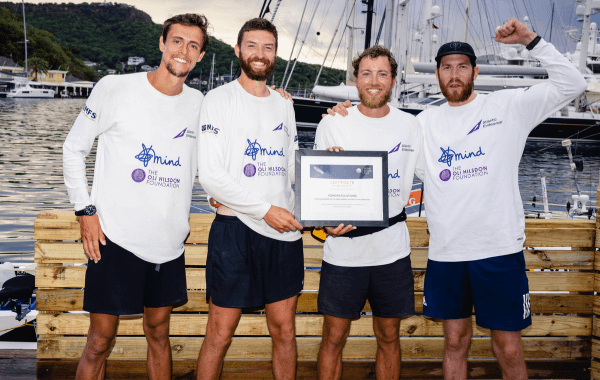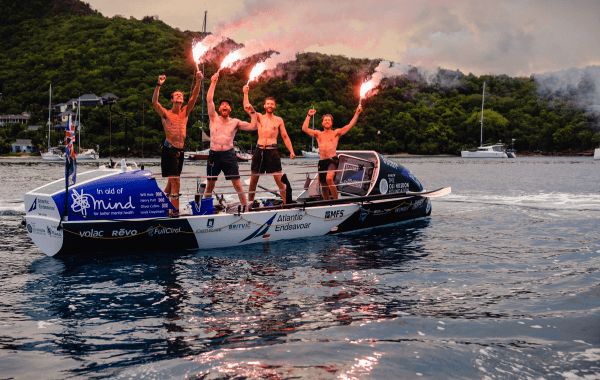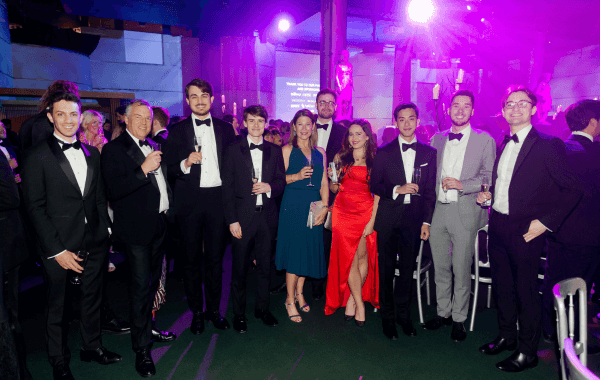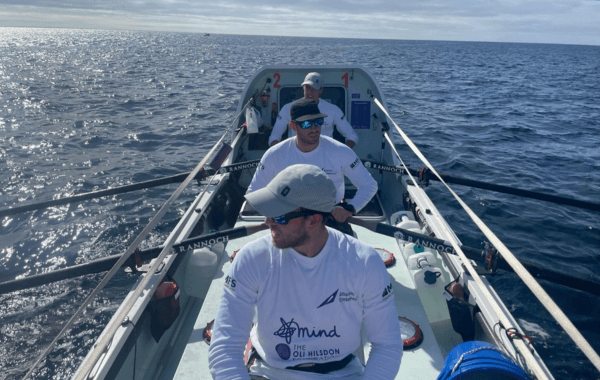In December 2022, Plural consultant Henry Putt rowed the Atlantic to raise money for two charities; Mind and the Oli Hilsdon Foundation. After he completed the challenge, we sat down with him to discuss his motivation, experience on the ocean and what he learned.
This article was last updated in April 2023.
What was the challenge?
In December 2022, three friends and I rowed unsupported across the Atlantic Ocean as part of the Talisker Whisky Atlantic Challenge. We departed from La Gomera in the Canary Islands and arrived in Antigua on 15th January – 33 days later.
33
days
23
hours
24
minutes
Why did you decide to take on the Atlantic Challenge?
I’ve always been attracted to once-in-a-lifetime experiences and have enjoyed physical endurance activities I’ve done in the past, so when I heard about this challenge, I jumped at the opportunity to get involved.
Another key motivation was the chance to support two amazing charities. We have been raising money and awareness for the Oli Hilsdon Foundation and Mind.
Can you tell us a bit more about the charities you are supporting?
The Oli Hilsdon Foundation was set up in loving memory of Oli Hilsdon who sadly lost his battle with Glioblastoma Multiforme, a malignant Grade IV brain tumour, in January 2019, just 10 days before his 27th birthday. The foundation was established to raise awareness of the condition and fund research projects that advance its goal of extending and ultimately saving the lives of those diagnosed with Glioblastoma Multiforme. Oli was a close friend of the team, his story and the opportunity to support such an important charity is a real source of inspiration for us.
Mind’s core aim is to ensure that everyone experiencing a mental health problem gets support and respect. Whether personally, or through friends and family, we have all seen the suffering that can be experienced through poor mental health. I certainly felt a lot of added pressure on my mental health during the Covid-19 pandemic, which really emphasised the importance of mental wellbeing and the need in society for the support that Mind provides.
How did Plural support your campaign?
Plural has been really supportive of me and the whole campaign; they gave me the time off to complete the challenge and helped raise awareness of our campaign and charities. Plural is also a key sponsor and helped us purchase the boat we will use for the crossing, which will be sold after the race with all proceeds going to our charities.
Can you describe what your Atlantic Challenge experience was like?
It’s quite hard to sum up, because it was over such a long period of time, we went through so many different moments and emotions as a team. It was this strange combination of being incredibly unique and amazing whilst also really really tough.
When everything was going smoothly, our day-to-day life on the boat was relatively simple. Our immediate world was an 8.5-metre-long boat with 2 cabins at each end with just enough room to lie down in. Every 24-hour period would consist of six 2-hour shifts with a 2-hour break in-between, which was repeated continuously for the entire 33-day crossing. Our off-shifts in the day would be taken up with boat and personal admin tasks (e.g., cleaning, eating, external communication, navigation etc.). We would mainly sleep during off-shifts at night, meaning we normally managed 4-5 hours of sleep a day.
The intensity of the challenge picked up when we faced non-standard challenges, such as adverse and extreme weather, boat and mechanical problems, and medical issues. In these scenarios; which were fairly regular, we were really tested as a team, as we often needed to resolve issues we had never before encountered while operating on only 2-3 hours of sleep. For me, however, its those times I look back on most proudly as we always came together as a team, worked out a solution, and continued to move the boat forward.

What were your favourite aspects of the journey?
My favourite times on the boat were when we had favourable winds behind us and clear skies above. On those days, we covered our furthest distances, 90-100 nautical miles, which was a massive morale boost for the team. We also had the most incredible views at sunset and sunrise, the colours were amazing and we had an endless horizon to take it all in.
How did you prepare for the Atlantic Challenge?
Given the scale of the challenge, there was a lot to do across a number of areas: physical & skills training, sourcing sponsorship, as well as charity fundraising.
On the physical side, I was in the gym or on the rowing machine 4-5 times a week to build a good cardiac base and the strength endurance required. On top of that, we aimed to accumulate over 200 hours’ of training on our boat down in Weymouth before the race start. This included developing our on-water skills and generally getting used to spending extended periods of time on the boat.
We also completed a number of courses covering sea survival, first aid, and technical skills to make sure we are well-prepared for life on the ocean. Funding this type of challenge is not cheap, so we also spent time sourcing the sponsorship funding, to cover all the equipment, logistics, and food costs involved. This involved reaching out to employers, friends, family and beyond, raising awareness about our campaign and discussing sponsorship opportunities with like-minded organisations.
It’s been an all-consuming pursuit at times, which can be tiring, but it’s great to see how we have been able to pull together as a team and we accomplished a lot that I am proud of.
What were the most challenging aspects of the row?
On Christmas Eve, really strong winds (30-40 knots) arrived and lasted for three days which was tough. In those conditions, the waves could be up to 7m-high and our small boat was pitched and thrown about. Initially, it was quite scary, especially at night, when you could only hear and feel the waves but couldn’t see exactly when they would arrive and from what direction. These conditions were typically very wet as well, the waves would come over the side of the boat and it would usually be raining; it was a very draining experience after a couple of days!

Do you have any advice for others looking to do an endurance challenge?
I would first make sure you fully understand what you’re getting yourself into, as these challenges require a lot of dedication and time. It took us two years of preparation and many hours learning the various skills involved.
If you feel like you don’t have the skills to take it on just yet, then sign up for a challenge in 1 to 3 years’ time – signing up is the crucial first step! I didn’t even know how to row before taking on this challenge, but learning new skills and preparing for the challenge is a massive part of the journey and the reward you feel once it’s completed. Also, if you need to learn completely new skills, then consider getting advice from specialist coaches who can help you best prepare.
How much have you managed to fundraise?
So far, we have raised £100,000 from our sponsors, family and friends who we are all extremely grateful to! We are hosting a charity ball at the end of April where we hope to raise some additional funds. We are really excited to see the impact the money we have raised will have on the Oli Hilsdon Foundation and Mind.
If you are inspired by Henry’s story and the charities he is supporting, then please consider donating to the charities via Atlantic Endeavoar’s website or social media pages.






